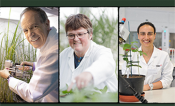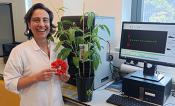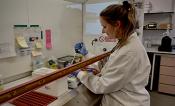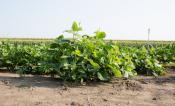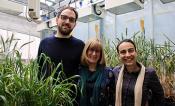Rubisco regulation is currently one of the most inefficient parts of the photosynthetic process. Through gene editing, the RIPE team aims to develop efficient Rubisco regulation that increases cowpea and soybean yields in current and future climates. Due to rising temperatures around the world, the genetics being developed for future food crops must work at higher temperatures for longer periods of time than today's crops. A significant inefficiency in today's crops is the plants' reaction time to changing light conditions. Crop leaves experience many fluctuations in light throughout each day, due to intermittent clouds, overlying leaves, and the sun's daily passage across the sky. In today's densely planted crops, these fluctuations are the norm. Lower efficiency of photosynthesis due to slow adjustment to light changes are estimated to cost up to 40 percent of potential productivity. Improving Rubisco regulation is a strategy that can improve food crops today and for the future.
- Watch the video below to learn more about this work and the importance of partnering with cowpea breeders and producers from our team members at Lancaster University.
- Check out the Lancaster photosynthesis team's website for their latest news and updates.














